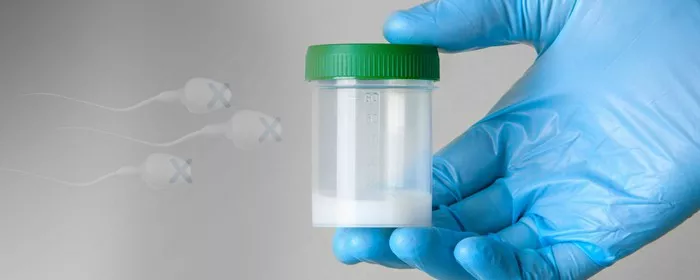Africa’s fertility industry, particularly sperm donation, is grappling with a critical lack of regulation and transparency, leaving both donors and recipients vulnerable to unethical practices, warn fertility experts. Without adequate oversight, there are growing concerns of consanguinity—where biological relatives unknowingly conceive children together—which raises the likelihood of genetic disorders and other health complications.
The absence of clear regulations exacerbates the situation, particularly in regions with the highest global prevalence of infertility, such as Africa, where 16% of the population faces fertility challenges. Despite primary infertility being less common in Sub-Saharan Africa, secondary infertility—struggling to conceive after a successful pregnancy—is increasingly prevalent.
In the face of these challenges, many couples turn to assisted reproductive technologies (ART), including in vitro fertilisation (IVF), which operates within an unregulated framework in Africa. According to Anthony Kayiira, a reproductive embryologist at Mulago National Referral Hospital in Uganda, the unregulated sale of sperm to numerous families increases the risk of offspring unknowingly forming consanguineous relationships, which can lead to genetic disorders.
“Sperm donations without proper oversight can create an environment where genetic disorders are more likely,” Kayiira explains. “We urgently need stricter regulations to protect both donors and recipients.”
In countries like Nigeria, the lack of limits on sperm donations—such as allowing men to donate up to 30 times a year—further compounds the risk of consanguinity. In contrast, nations with stricter regulations, like the UK, limit sperm donations to prevent one donor from fathering too many children. The American Society for Reproductive Medicine also advocates for records that restrict the number of pregnancies linked to any one donor.
Fertility professionals acknowledge that in Africa, sperm donation often occurs without adequate tracking, resulting in donors unknowingly contributing to multiple families, which raises both ethical and genetic concerns. This lack of oversight has led to the exploitation of young donors, particularly in Uganda, where sperm donations are often financially motivated. Ruth Sekindi, director of monitoring at the Uganda Human Rights Commission, emphasizes that younger men, often in need of financial support, are particularly vulnerable.
“The current system exploits young people for their biology, offering little in terms of understanding the long-term implications,” Sekindi states. “We need age restrictions in legislation to prevent further exploitation.”
The absence of proper legislation in many African countries has led to calls for reforms. For example, in Uganda, legislator Sarah Opendi introduced the Human Assisted Reproductive Technology Bill 2023 to regulate fertility practices, aiming to create a structured framework to protect both donors and recipients. Similarly, South Africa is facing challenges with unclear regulations regarding sperm donation. Letlhokwa George Mpedi, Vice-Chancellor of the University of Johannesburg, argues that while the National Health Act provides some guidelines, it is insufficient to address emerging ethical dilemmas.
The lack of standardisation across fertility clinics also creates disparity in donor compensation. In Uganda, for example, donors receive minimal compensation, while recipients pay between $2,000 and $4,000 for insemination treatments, raising concerns about equity in access to ART.
Experts, including Lisa Stark Hughes, an advocate for surrogacy in Uganda and Kenya, stress the need for a transparent framework that includes clear guidelines to prevent exploitation and ensure ethical practices. “There is a need for stricter regulations on sperm donation to protect donors from exploitation and prevent genetic complications,” Hughes explains.
Furthermore, cultural and societal barriers in African communities complicate the issue. In some regions, infertility is stigmatized, and sperm donation may be taboo, limiting the pool of available donors and increasing the risk of consanguinity.
To address these challenges, experts call for increased education, stricter oversight, and community involvement. By promoting transparency, ensuring fair compensation, and establishing age restrictions, the African fertility industry can work towards more ethical and equitable practices. As Kayiira concludes, “It is essential to protect the welfare of both donors and recipients to maintain a safe and ethical sperm donation process.”
Related topics:
Next Biosciences Expands Fertility Solutions Amid Rising Infertility Rates in South Africa
North Dakota Lawmakers Reject Fertility Bill Amid Controversy
Electro-Acupuncture as a Complementary Therapy in IVF: Promising Clinical Findings























